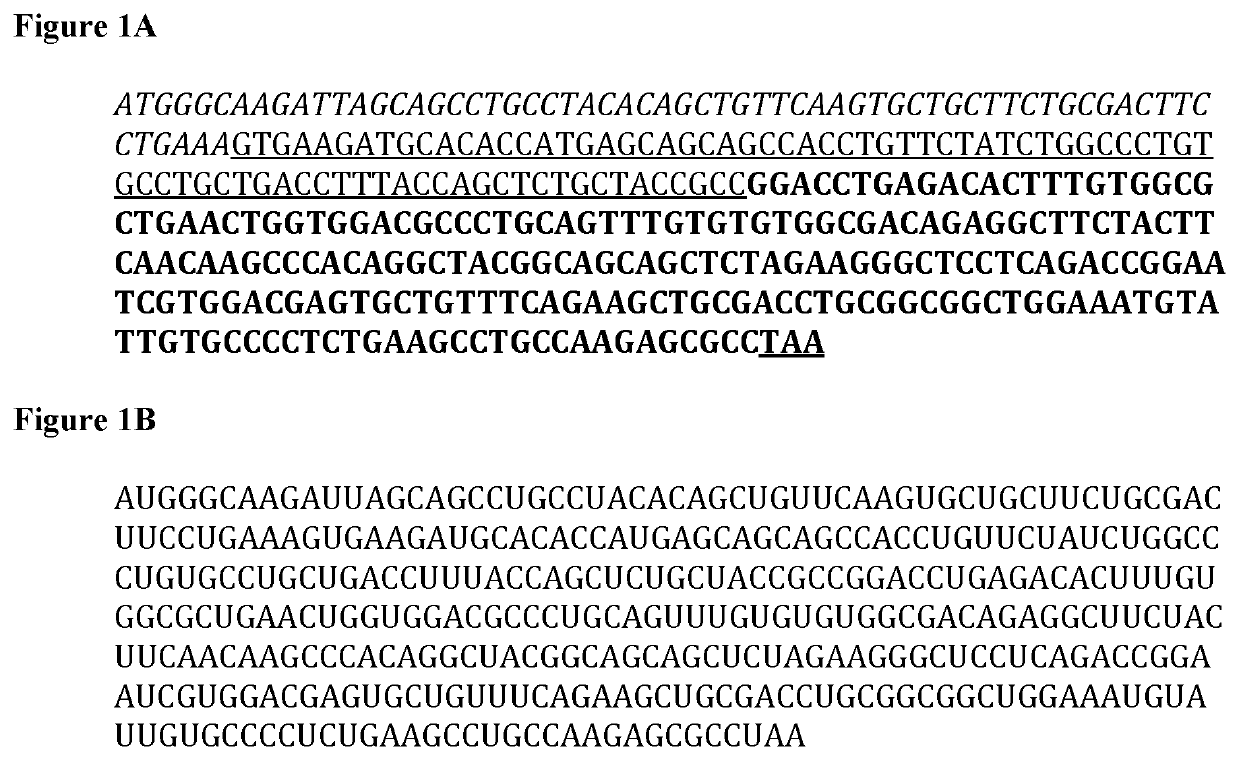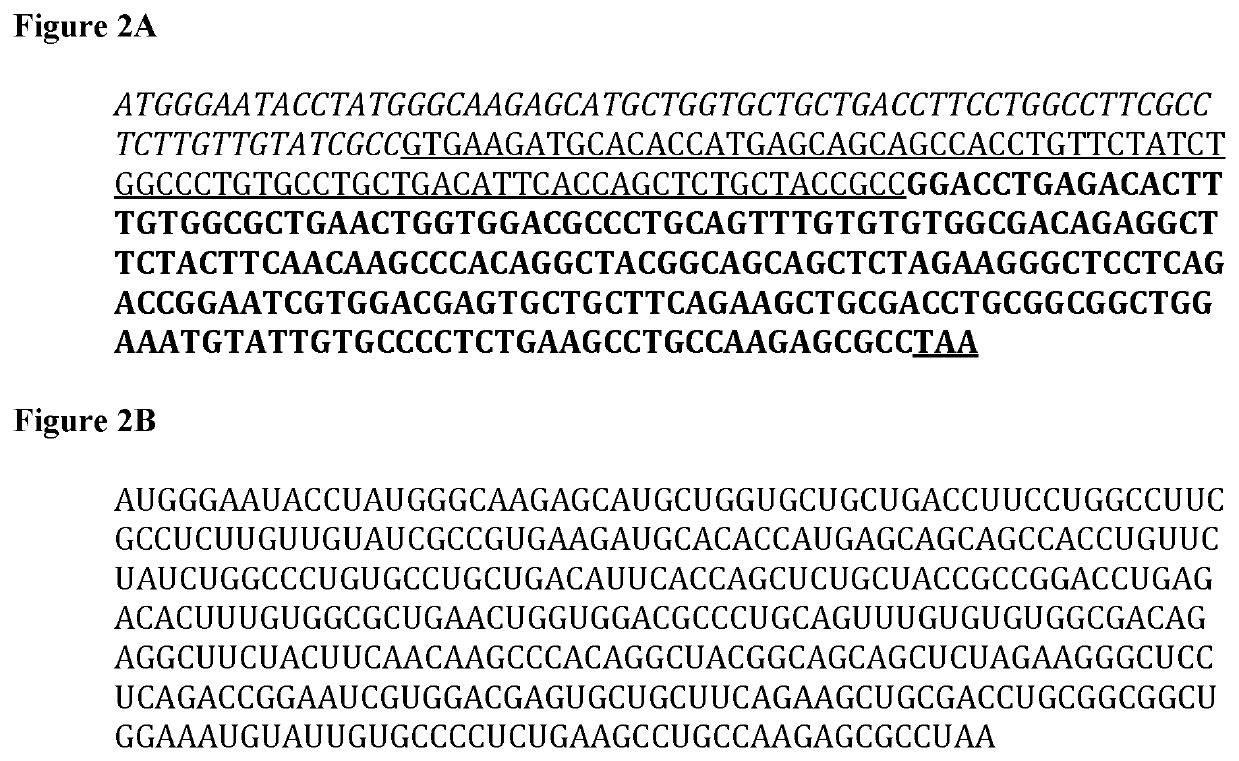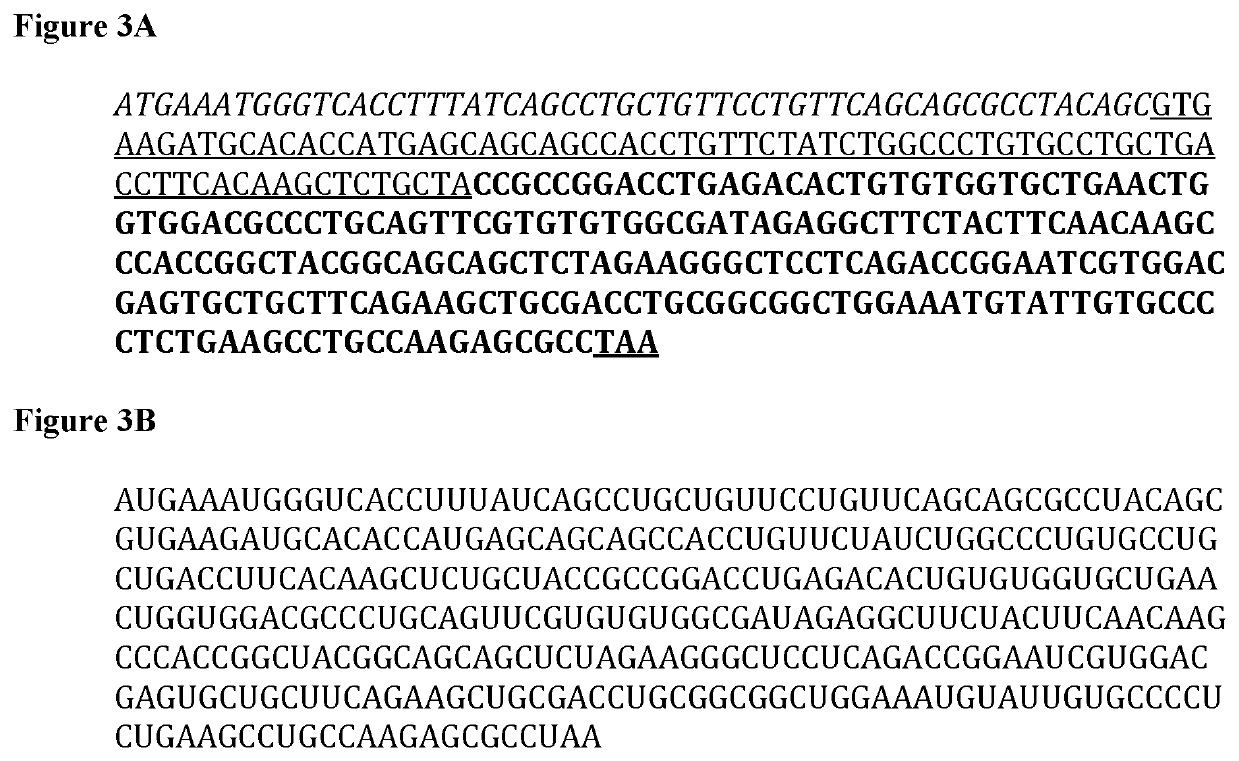RNA encoding a protein
a technology of encoded proteins and encoded proteins, applied in the field of mrna, can solve the problems of recombinant expression, difficult problem, and inability to efficiently express encoded proteins in cell-free systems, cells or organisms
- Summary
- Abstract
- Description
- Claims
- Application Information
AI Technical Summary
Benefits of technology
Problems solved by technology
Method used
Image
Examples
example 1
Methods and Material
Cloning of IGF1 and Exchange of Signaling Peptides
[0300]IGF1 is a 70 amino acid polypeptide synthesised in the endoplasmatic reticulum and secreted via the Golgi apparatus to act as extracellular growth factor in an auto- and paracrine manner. For ensuring proper expression and secretion of mRNA-induced IGF1 out of the transfected cell, the mRNA sequence included the natural N-terminal pre-pro-sequence of human IGF1 (pre-pro-IGF1). This sequence consisted of the sequence encoding the pre-domain (signalling peptide) of human IGF1 with 21 amino acids (nucleotides 1-63) and the sequence encoding the human pro-domain with 27 amino acids (nucleotides 64-144). Furthermore, the construct contained the sequence encoding the full coding sequence of mature human IGF1 with 70 amino acids (nucleotides 145-354). In Cpd.2-7, the pre-domain (signaling peptide, nucleotide 1-63) was exchanged by respective pre-domains of IGF2, ALB, BDNF, CXCL12, or the synthetic signalling peptid...
example 2
[0338]To test the efficacy of locally applied IGF-I mRNA in a mouse model of skeletal muscle injury, 8-10 weeks old male C57BL6 / J mice were subjected to notexin-induced myotoxic injury in the tibialis anterior (TA) on day 0. On day 1 after injury, vehicle or 1 μg mRNA (Cpd.4) were applied via intramuscular injection into the injured muscle and repeated on day 4 after injury. Muscle function in the TA was measured at Day 1, 4, 7, 10, 14, 21 and 28 post-injury. A subset of contralateral TA muscles were also assessed throughout the study to assess the healthy control levels of TA muscle function.
Methods and Material
[0339]Cloning of IGF-1 and In Vitro Transcription of IGF-1 mRNA
[0340]Cloning of IGF-1 and in vitro transcription of IGF-1 mRNA was carried out as described in example 1. Codon optimized DNA of Cpd. 4 (FIG. 4A) was used to be cloned in pMA-T vector to provide for the construct as shown in FIG. 11. This construct was used to produce in vitro transcribed mRNA used for mRNA trea...
PUM
| Property | Measurement | Unit |
|---|---|---|
| pH | aaaaa | aaaaa |
| pH | aaaaa | aaaaa |
| concentration | aaaaa | aaaaa |
Abstract
Description
Claims
Application Information
 Login to View More
Login to View More - R&D
- Intellectual Property
- Life Sciences
- Materials
- Tech Scout
- Unparalleled Data Quality
- Higher Quality Content
- 60% Fewer Hallucinations
Browse by: Latest US Patents, China's latest patents, Technical Efficacy Thesaurus, Application Domain, Technology Topic, Popular Technical Reports.
© 2025 PatSnap. All rights reserved.Legal|Privacy policy|Modern Slavery Act Transparency Statement|Sitemap|About US| Contact US: help@patsnap.com



